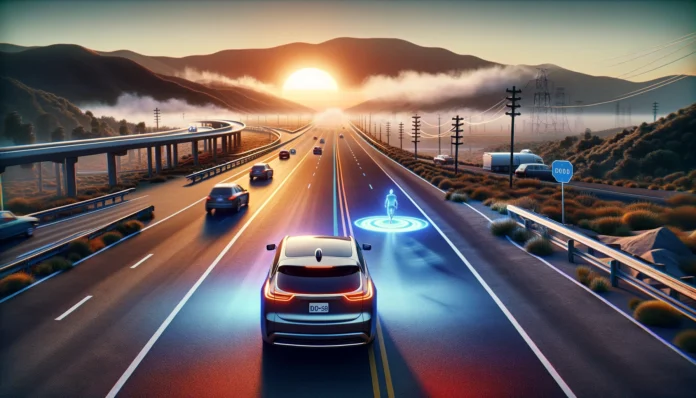In the not-so-distant future, our roads will be populated by a new breed of drivers: autonomous vehicles powered by artificial intelligence (AI). While these vehicles promise to revolutionize transportation with their potential to enhance safety, efficiency, and convenience, they also raise profound ethical questions that demand careful consideration.
Imagine cruising down the highway in your self-driving car when suddenly, a pedestrian darts into the road. In a split second, your vehicle must make a decision: swerve to avoid the pedestrian, risking the safety of the occupants, or maintain its course, potentially causing harm to the pedestrian. This scenario encapsulates the moral dilemma at the heart of AI ethics in autonomous vehicles.
At the crux of the issue is the concept of moral decision-making. How should AI algorithms be programmed to navigate complex moral dilemmas? Should they prioritize the safety of the vehicle occupants, the safety of other road users, or some combination of both? These are questions that ethicists, policymakers, and technologists are grappling with as autonomous vehicles inch closer to widespread adoption.
One approach to addressing these ethical concerns is through the development of ethical frameworks for AI in autonomous vehicles. These frameworks aim to provide guidance on how AI algorithms should behave in morally ambiguous situations. For example, some frameworks advocate for a utilitarian approach, where algorithms are programmed to minimize overall harm or maximize the greater good. Others argue for a more egalitarian approach, which prioritizes fairness and equal consideration for all stakeholders.
However, implementing these frameworks is easier said than done. Ethical decision-making is inherently subjective and context-dependent, making it challenging to distill into algorithmic logic. Furthermore, there is no one-size-fits-all solution to moral dilemmas, as cultural, social, and individual values vary widely.
Another avenue of exploration is the concept of machine ethics, which seeks to imbue AI systems with a sense of morality or ethical reasoning. This approach involves teaching AI algorithms to recognize and respond to ethical principles, much like a human driver would. While still in its infancy, research in machine ethics holds promise for addressing the ethical challenges posed by autonomous vehicles.
In addition to ethical considerations, there are also legal and regulatory implications to consider. Who should be held liable in the event of an accident involving an autonomous vehicle? How can we ensure accountability and transparency in the development and deployment of AI systems? These are questions that policymakers and legal experts are actively grappling with as they seek to establish a regulatory framework for autonomous vehicles.
Moreover, the societal implications of autonomous vehicles extend beyond the realm of ethics and law. These vehicles have the potential to reshape our cities, economies, and social interactions in profound ways. From reducing traffic congestion and emissions to improving access to transportation for underserved communities, the benefits of autonomous vehicles are vast and far-reaching.
As we navigate the moral roads ahead, it’s essential to approach the development and deployment of autonomous vehicles with careful consideration for the ethical, legal, and societal implications. By fostering interdisciplinary collaboration and engaging stakeholders from diverse backgrounds, we can work towards a future where autonomous vehicles not only enhance safety and efficiency but also reflect our shared values and priorities.





